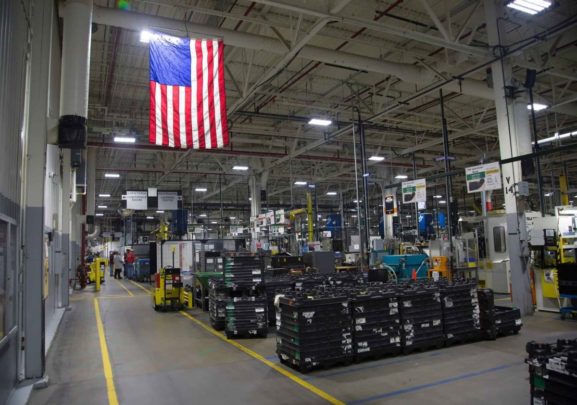Skills Gap Challenge for Manufacturing Success

By Lisa Anderson
According to a study by Deloitte and The Manufacturing Institute, two million jobs could go unfilled in the sector by 2030. The cost in 2030 alone could potentially total $1 trillion. Worse yet, the surveyed manufacturers said it is 36 percent harder to find the right talent than in 2018, and 77 percent of manufacturers expect to have ongoing difficulties attracting and retaining manufacturing employees.
As technology, automation and artificial intelligence (AI) continue to gain steam, lower-skilled jobs are automated, but higher-skilled jobs become critical. The gap is significant. Additionally, as reshoring gains momentum and manufacturing expansion becomes a priority with the rise of geopolitical risk and the rollout of government-funded programs such as the CHIPS Act, manufacturing will increase, and the skills gap will widen. Finally, by 2030, the youngest of the largest generation in history will be older than 65, further decreasing the workforce.
Simply hiring a recruiting firm will no longer be sufficient. There simply are not enough manufacturing resources to fulfill the needs. Proactive executives will put an increased emphasis on training and development. For example, an aerospace manufacturer needed far more machine operators than they could find, so the company set up a training facility and hired trainers to put new hires through a comprehensive training and development program. They went from constantly struggling to creating a pipeline of qualified candidates. Another client sent employees to a technical training center in the region to gain manufacturing skills.
Relying on your planners, buyers, and analysts’ college education and prior work history is no longer sufficient. At least 80 percent of clients are struggling to hire resources with the appropriate education and training. For example, two power systems and electrical equipment manufacturers serving different industries went live with an upgraded ERP system. Although they brought on significant support, both struggled due to lack of production planning and inventory concept education and training for their resources. Proactive clients are arranging ERP and MRP (material requirements planning) education for their employees. For example, a significant beverage manufacturer has been coordinating with a local supply chain education partner to provide practical education.
Turn traditional thinking on its head. Supplement your employees with consultants to upgrade processes and improve efficiencies, hire temporary employees to fill gaps and partner with specialist resources such as engineering firms to make quicker progress. Take the opportunity to identify different pools of talent such as veterans and retired workers and reexamine your qualifications. For example, a building products manufacturer eliminated its requirement for a college degree and replaced it with practical experience and/or approved skills training. Not only did they find additional candidates, but the candidates were a better fit for the role.
Leadership and culture will be vital to closing the skills gap. People do not follow companies; people follow leaders. The best employees expect leaders to have high expectations, to address poor performers, to face reality with tough topics, and to appreciate and recognize progress. For example, an industrial equipment manufacturer was able to find and retain employees in a small town with limited resources and a key competitor because employees knew that the leader would expect high levels of performance, push for excellence and care about results.
Attracting and retaining talent will be key to success in the manufacturing industry in the next decade. Proactive executives are developing creative alternatives to traditional hiring, retention, training and development strategies. The best remain committed to leadership and culture to retain top talent and attract scarce talent.
Lisa Anderson is the founder and president of LMA Consulting Group, Inc., a consulting firm that specializes in manufacturing strategy and end-to-end supply chain transformation that maximizes the customer experience and enables profitable, scalable, dramatic business growth. She recently released “SIOP (Sales Inventory Operations Planning): Creating Predictable Revenue and EBITDA Growth”, an e-book on how to better navigate supply chain chaos and ensure profitable, scalable business growth. A complimentary download can be found at
www.lma-consultinggroup.com/siop-book/.


